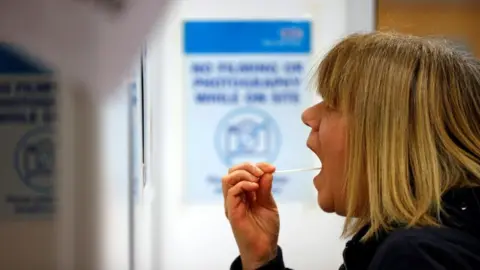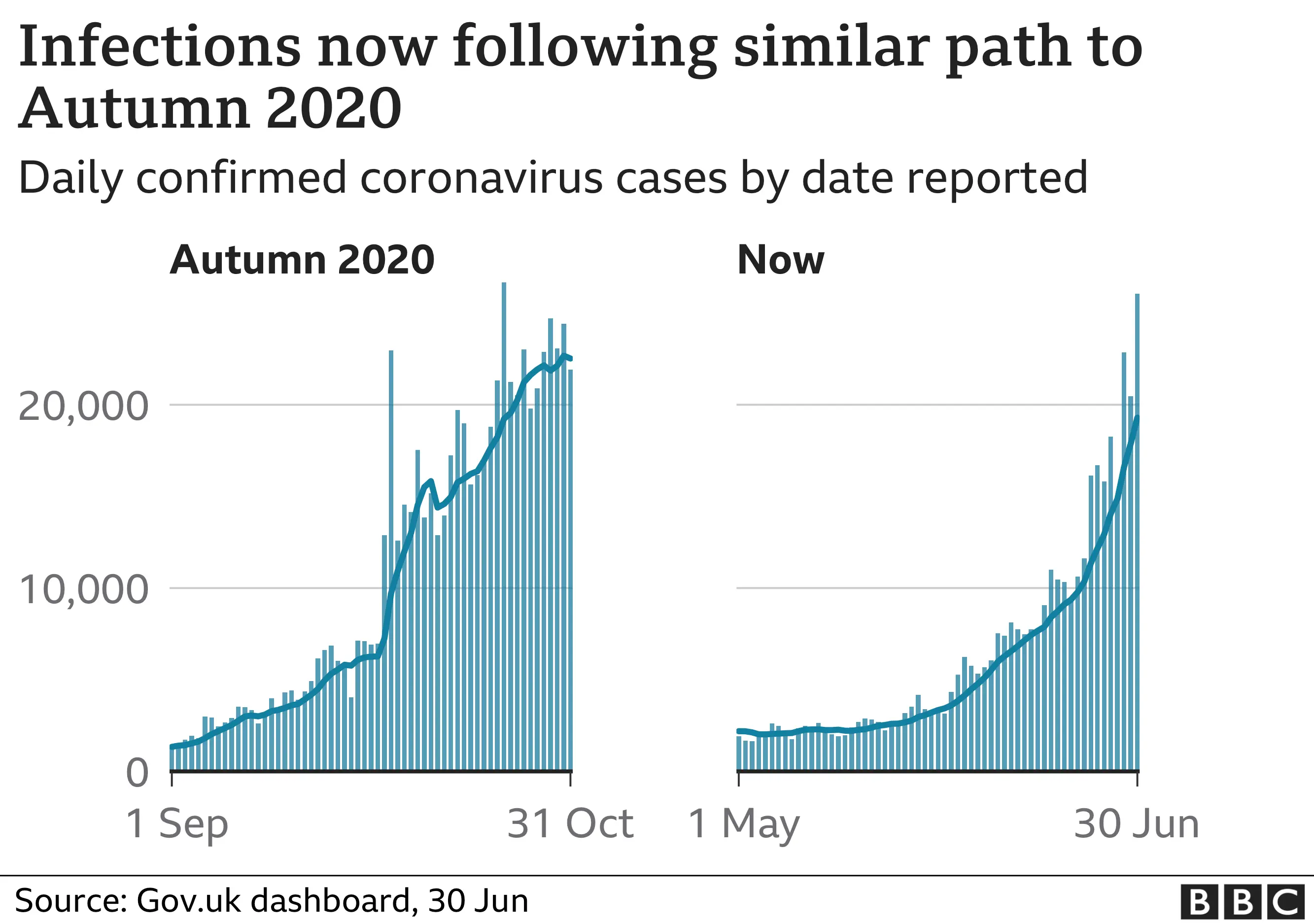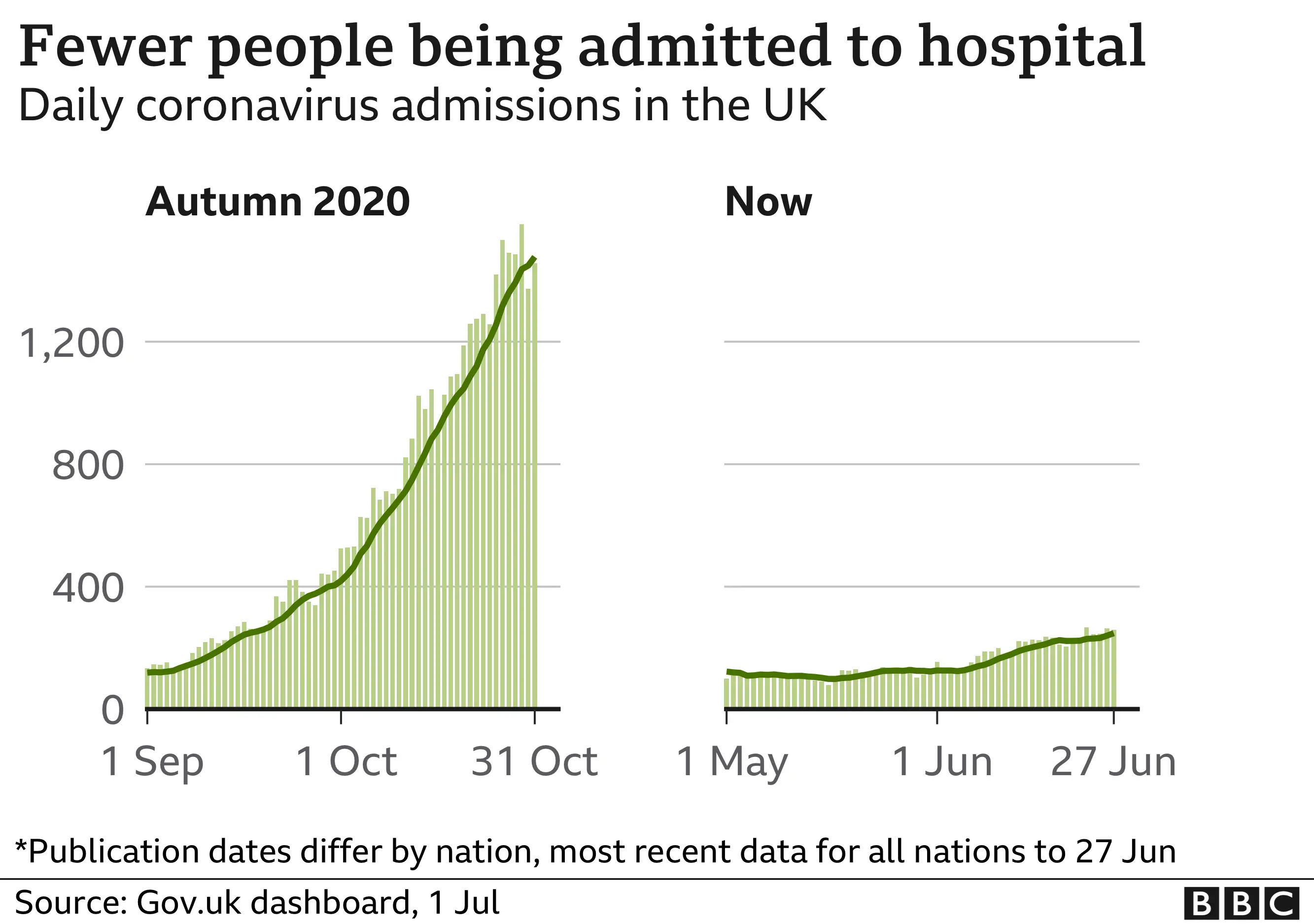Covid: Infections rising, but vaccines saving lives
 Getty Images
Getty ImagesCovid infections are continuing to rise across the UK, Office for National Statistics (ONS) data suggests.
But officials say vaccines are stopping similar rises in hospital admissions, and they are urging everyone to come forward for both doses.
"It will help us to break the chain of transmission, and save lives," said Dr Jenny Harries, from the UK Health Security Agency.
England is due to lift most remaining Covid restrictions on 19 July.
According to ONS estimates, there was "a notable increase in infection rates" across England, Wales and Scotland during the week ending 26 June.
One in every 250 people may now be infected by coronavirus, it says.
In Scotland, which has not seen estimated level of infections this high since the start of February, one in every 150 people could be infected.
These rises are driven by the Delta variant and, although infection rates are now similar to February, it is hoped fewer people will go on to become ill with severe symptoms, because of the vaccination programme.
Recent government figures suggest that vaccines have already reduced hospital admissions and deaths.
Fewer than one in 1,000 infections is now leading to a death - compared with one in 60 last winter.


But ONS figures, based on swab tests on thousands of people in their own homes, suggest:
- one in 150 people now have the virus in Scotland - compared to one in 220 last week
- one in 260 in England - compared to one in 440 last week
- one in 450 in Wales - compared to one in 830 last week
- one in 670 in Northern Ireland - compared to one in 720 last week
Sarah Crofts, from the ONS Covid-19 Infection Survey, said: "It is crucial we continue to monitor infection rates and the impact of the vaccination programmes."
The highest percentage of people testing positive in England was in the North East (1%) and North West (0.9%).
Positive tests rose in all age groups, except among those aged 70 and over.
Virus levels in England were highest in the young, particularly those aged 17 to 24 and children in school years 7-11.
'Be vigilant'
Official government figures also show that cases are continuing to rise. There were 27,125 new cases reported on 2 July - up from 15,810 a week before - and 27 deaths. Around 1,800 people are currently in hospital with Covid.
Prof Kevin McConway said he hoped and expected the vaccines to make a difference - but caution was still needed.
"As more of the youngest adults have at least one vaccine dose, and more middle-aged and younger people have both doses, the numbers of people who would test positive will increase more slowly," he said.
"If that doesn't happen, and infections do continue to double in something like every two weeks, it won't take all that many weeks until infections are back at the sort of levels we've seen in previous peaks - so we can't stop being vigilant, particularly as and when more restrictions are removed."
Prof James Naismith, from the University of Oxford, said the delta variant would sweep through developing countries which were much less prepared.
"Once delta gets going it will overwhelm health care systems very rapidly unless vaccination improves.
"More thought needs given to whether vaccinating young children in the rich world is as important and ethically justified as vaccinating key workers and the most vulnerable in developing countries."
